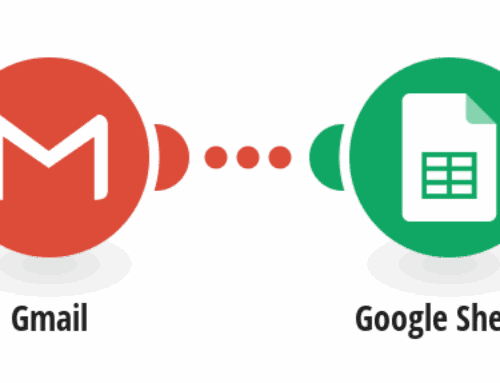How to Track Shopify Orders and Create Offline Conversion Events on Facebook
Introduction to Integrating Shopify and Facebook
If you’re running an online store via Shopify, you’re probably well aware of the importance of tracking your orders. But what if you could take it a step further and link this information to your Facebook marketing efforts? That’s where creating offline conversion events comes in. By connecting your Shopify order data to Facebook, you can get a clearer picture of your marketing effectiveness.
This integration allows you to track conversions that happen both online and off, providing a more comprehensive view of your sales funnel. Whether a customer finds you through a Facebook ad and makes a purchase online or visits your physical store, capturing these details helps fine-tune your ad strategies and boost your ROI.
Understanding Shopify Order Tracking
Tracking orders in Shopify involves monitoring every step of the customer’s purchase journey, from the initial order placement to delivery. This is crucial for maintaining customer satisfaction and optimizing inventory management. But beyond logistics, this data is a goldmine for understanding consumer behavior.
With detailed insights into who buys what and when, Shopify’s analytics empower you to tailor your product offerings and marketing campaigns. You can segment your audience based on past purchase behavior, ensuring you’re always targeting the right people with the right message at the right time.
The Basics of Facebook Offline Conversion Events
So, what exactly are offline conversion events on Facebook? Simply put, they’re a way to measure actions that occur outside your digital footprint. Maybe someone saw your ad online but decided to walk into your store and make a purchase—offline conversion tracking captures this.
By enrolling these offline events into your Facebook analytics, you get a more rounded understanding of your ad performance. It’s like getting the complete picture of a jigsaw puzzle rather than just a piece. This information is essential for adjusting your ad spend and creative strategies effectively.
Benefits of Connecting Shopify Orders with Facebook
Linking your Shopify orders with Facebook offline events isn’t just about data—it’s about actionable insights. One of the clear benefits is enhanced customer targeting. With a seamless data flow between platforms, you know precisely which campaigns drive actual sales, not just clicks or likes.
Moreover, better tracking leads to better budgeting. You’re no longer throwing money at broad audiences; instead, you target those most likely to convert. The result? Increased sales efficiency and improved customer lifetime value, both of which are vital metrics in sustaining a profitable business.
Getting Started: Prerequisites for Integration
Before you dive into integrating Shopify and Facebook, there are a few prerequisites to check off your list. First, ensure you have admin access to both your Shopify store and your Facebook Business Manager account. Without this level of control, executing a smooth integration can be tricky.
Additionally, make sure both platforms are updated with the latest features. This includes double-checking your Facebook Pixel setup—a vital component for tracking online behavior and marrying it with offline conversions. Once these basics are sorted, you’re ready to begin the intricate dance of cross-platform integration.
Setting Up the Integration Process
The first step in setting up this integration is installing the necessary apps or plugins. In Shopify, you’ll find a variety of apps designed to connect with Facebook, many of which automate the data transfer process. Choose one that suits your business needs and follow the installation instructions carefully.
Once the app is installed, it’s all about configuration. You’ll need to map your conversion data accurately between Shopify and Facebook. Think of it as inputting coordinates into a GPS—you need precision for the journey ahead. Ensure every Shopify event correlates with its appropriate Facebook counterpart for seamless tracking.
Monitoring and Optimizing Your Setup
After setting everything up, you might think the hard work is over. But in reality, this is just the beginning. Monitoring your integration’s performance is essential to catch any glitches early on and optimize accordingly. Regularly check your data feeds on both Shopify and Facebook to ensure they’re syncing correctly.
Optimization isn’t just about squashing bugs; it’s about enhancing performance. Review your ad campaigns using the newly integrated data to look for trends or patterns. Use this intelligence to tweak your ad creatives or targeting methods, ultimately driving better results from your marketing spend.
Conclusion
Integrating Shopify orders with Facebook offline conversion events is a strategic move that elevates your marketing game. By doing so, you not only gain a deeper understanding of your customer’s journey but also leverage this data to enhance your advertising strategies. This process requires some initial setup effort, but the long-term benefits of increased sales efficiency and targeted marketing are well worth the investment.
FAQs
How do Shopify and Facebook integration benefit my business?
Integrating Shopify with Facebook allows you to track offline conversions, offering a comprehensive view of your marketing success across both online and physical sales channels. This helps in fine-tuning your marketing efforts for better returns.
Is it difficult to set up Shopify and Facebook integration?
While the setup process involves several steps and requires administrative access, various apps can simplify this integration. Follow the guidelines carefully to ensure accurate data mapping and seamless connectivity between platforms.
Can I track offline conversions without using Facebook Pixel?
Using Facebook Pixel is crucial as it captures online user behaviors which, when combined with offline conversion events, provides a holistic view of your customer interactions. Thus, it’s highly recommended to use it.
What should I do if my data between Shopify and Facebook isn’t syncing?
If the data between Shopify and Facebook isn’t syncing correctly, first check your app configurations and ensure that your accounts have the required permissions. Regularly monitor both platforms and troubleshoot any discrepancies promptly.
Will integrating Shopify with Facebook improve my ad targeting?
Yes, integrating these platforms allows for more precise ad targeting by linking conversion data with customer profiles. This ensures your ads reach the most relevant audience, enhancing click-through rates and overall campaign effectiveness.











